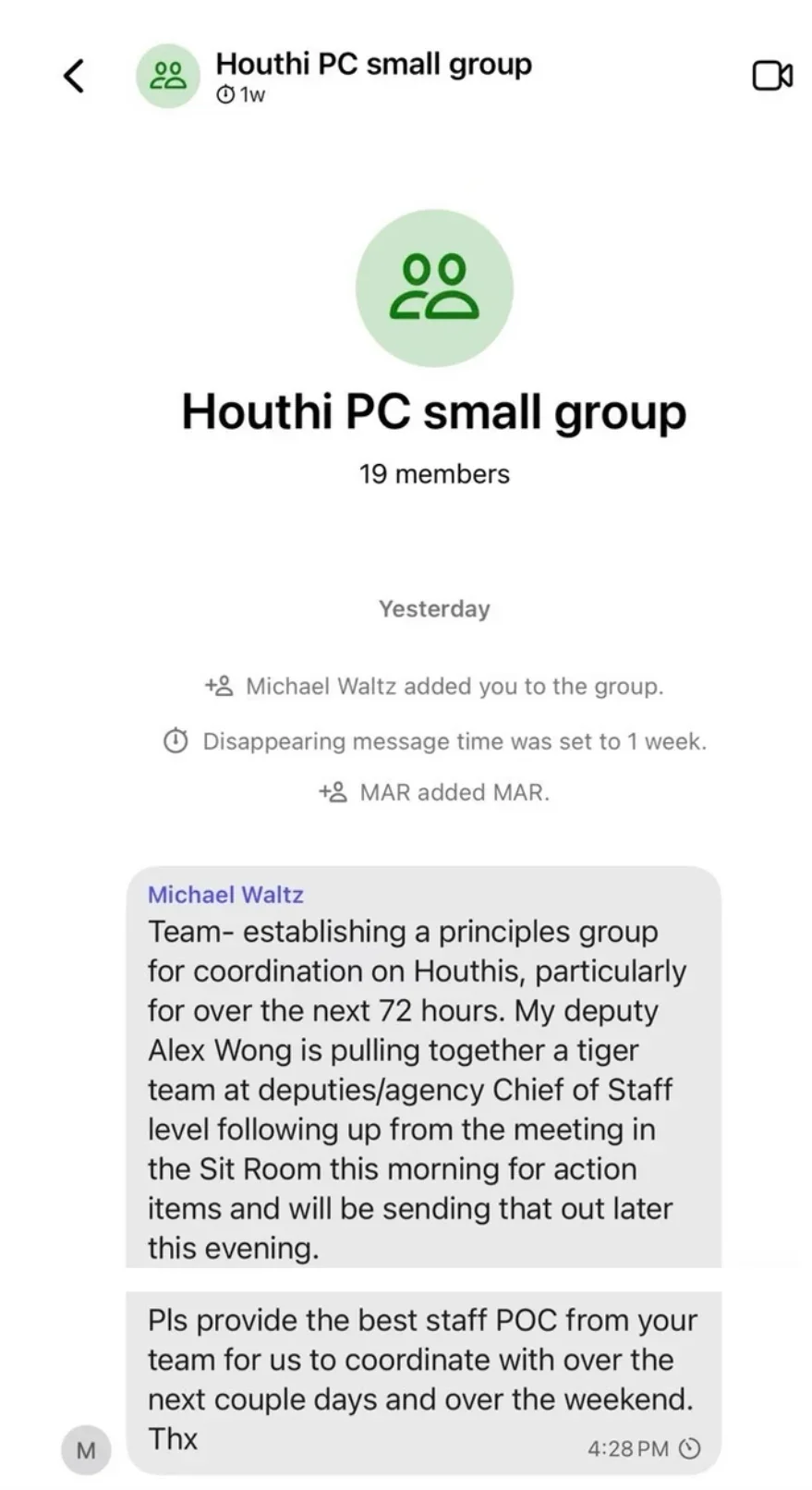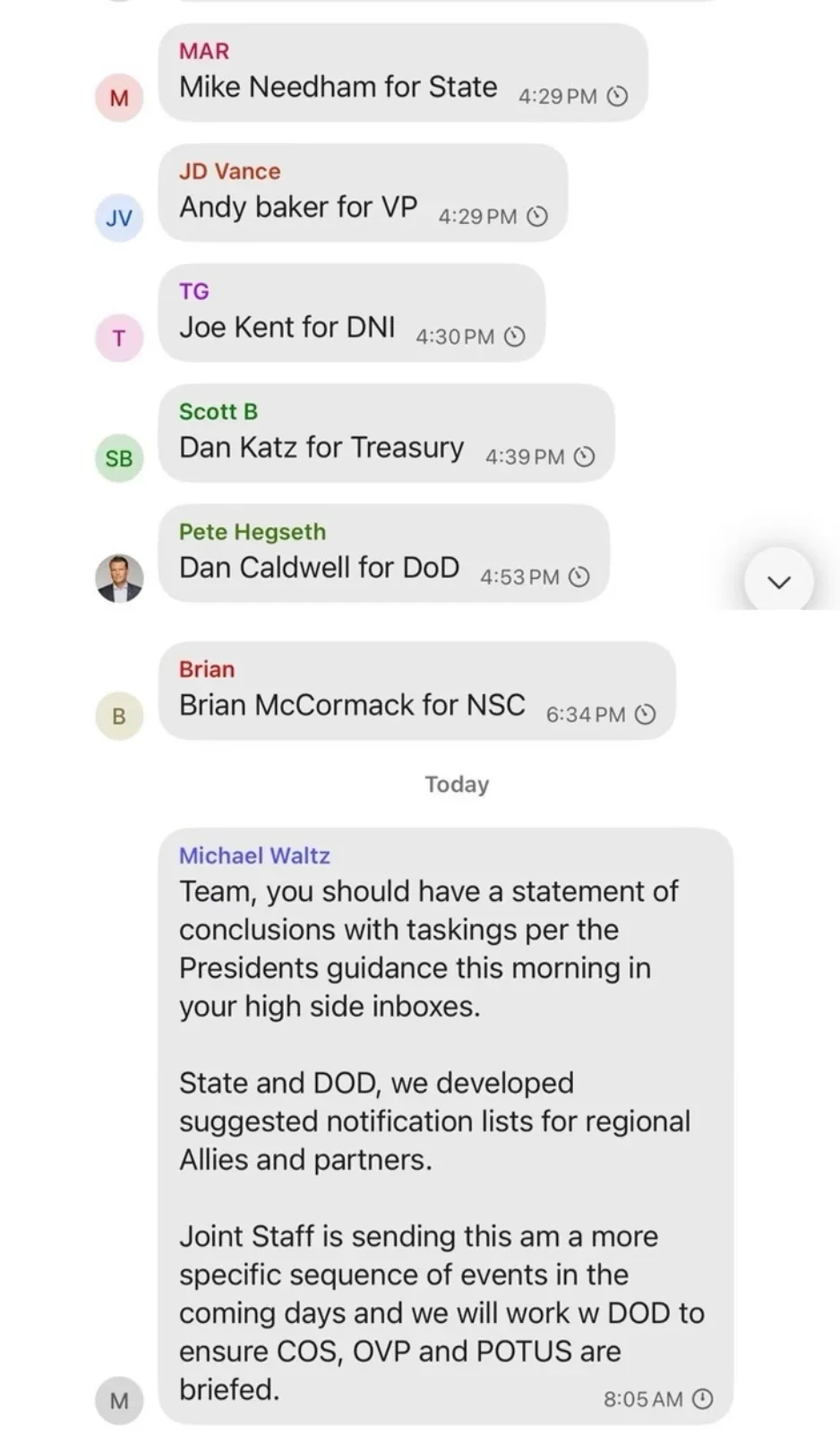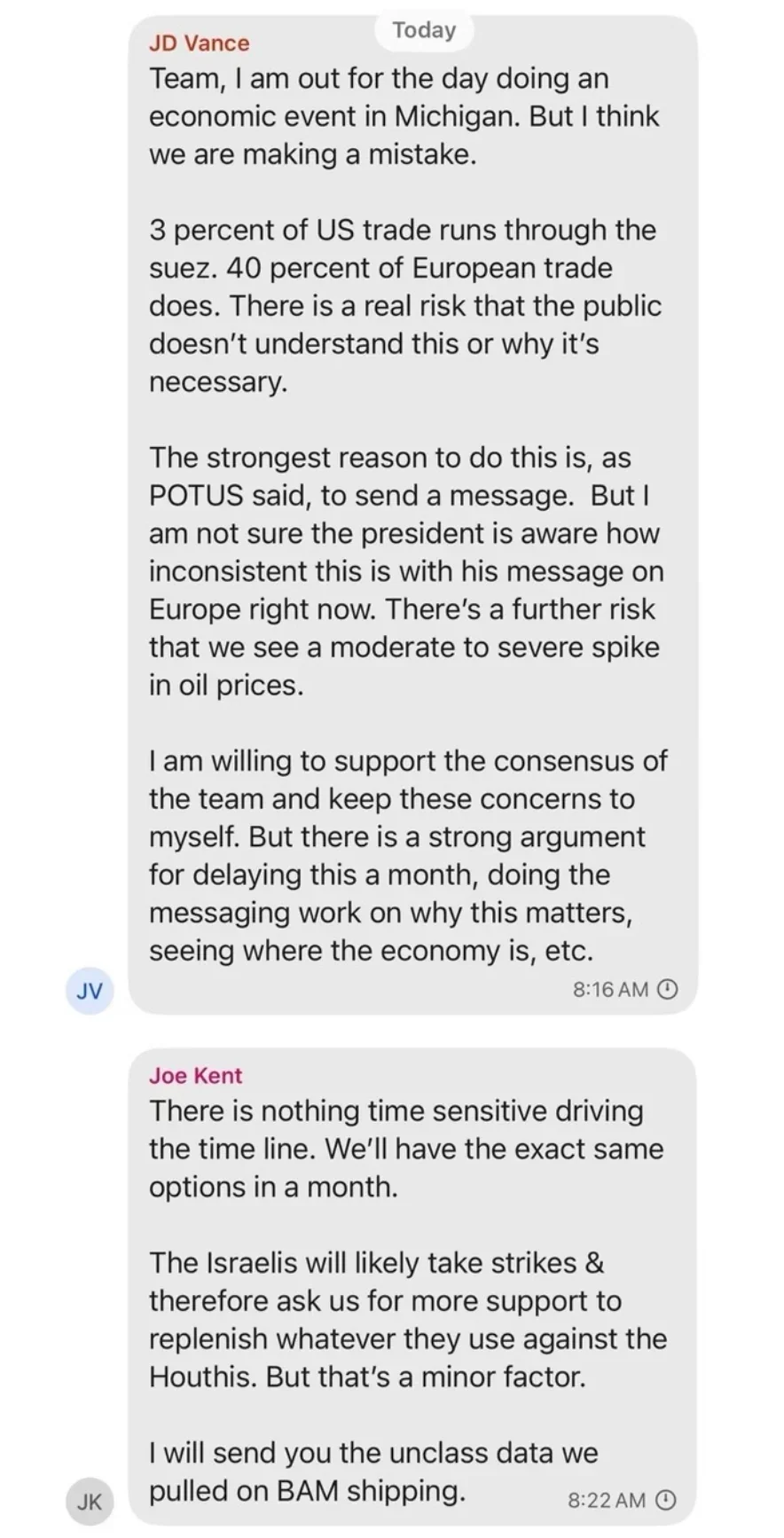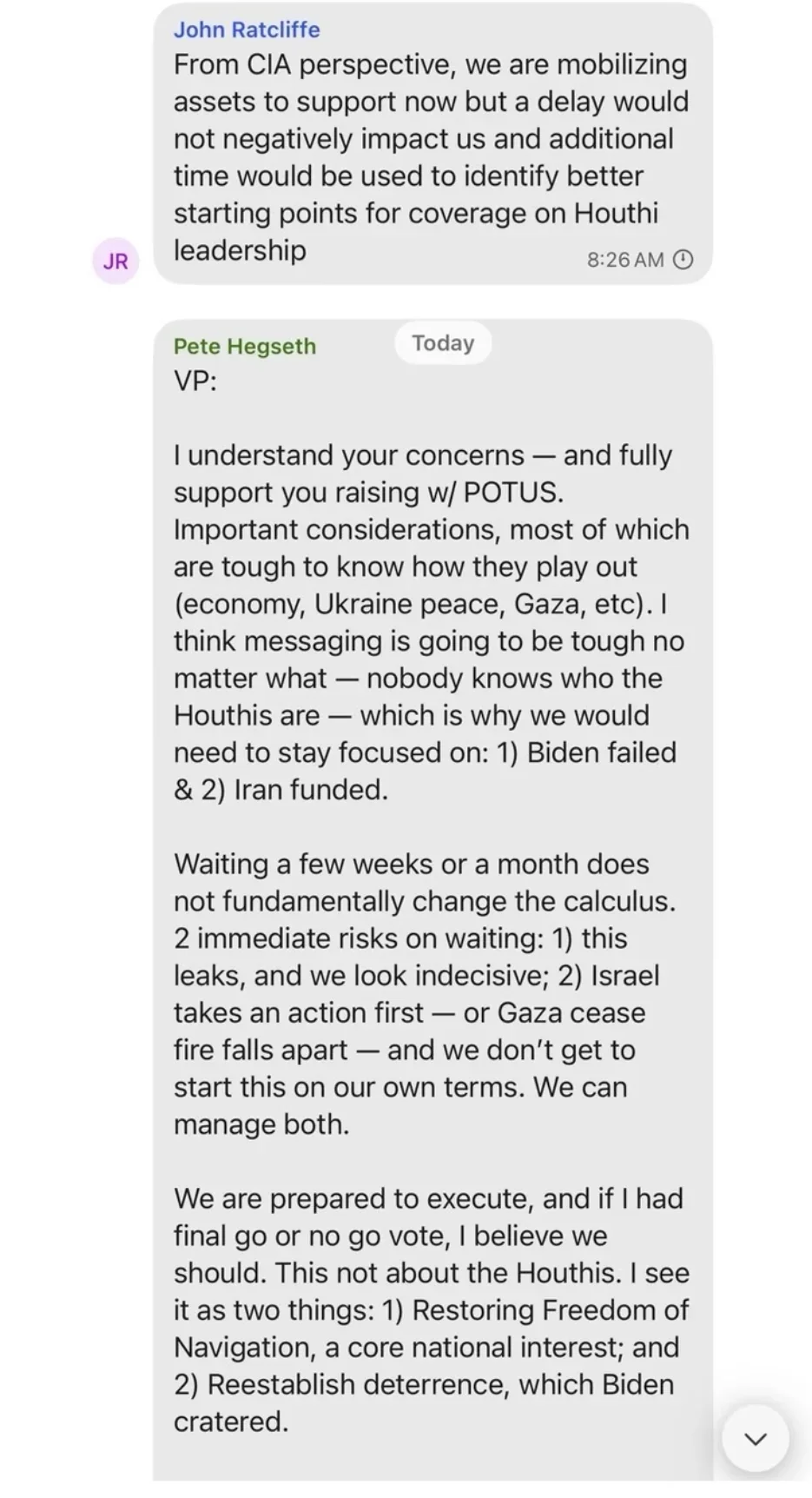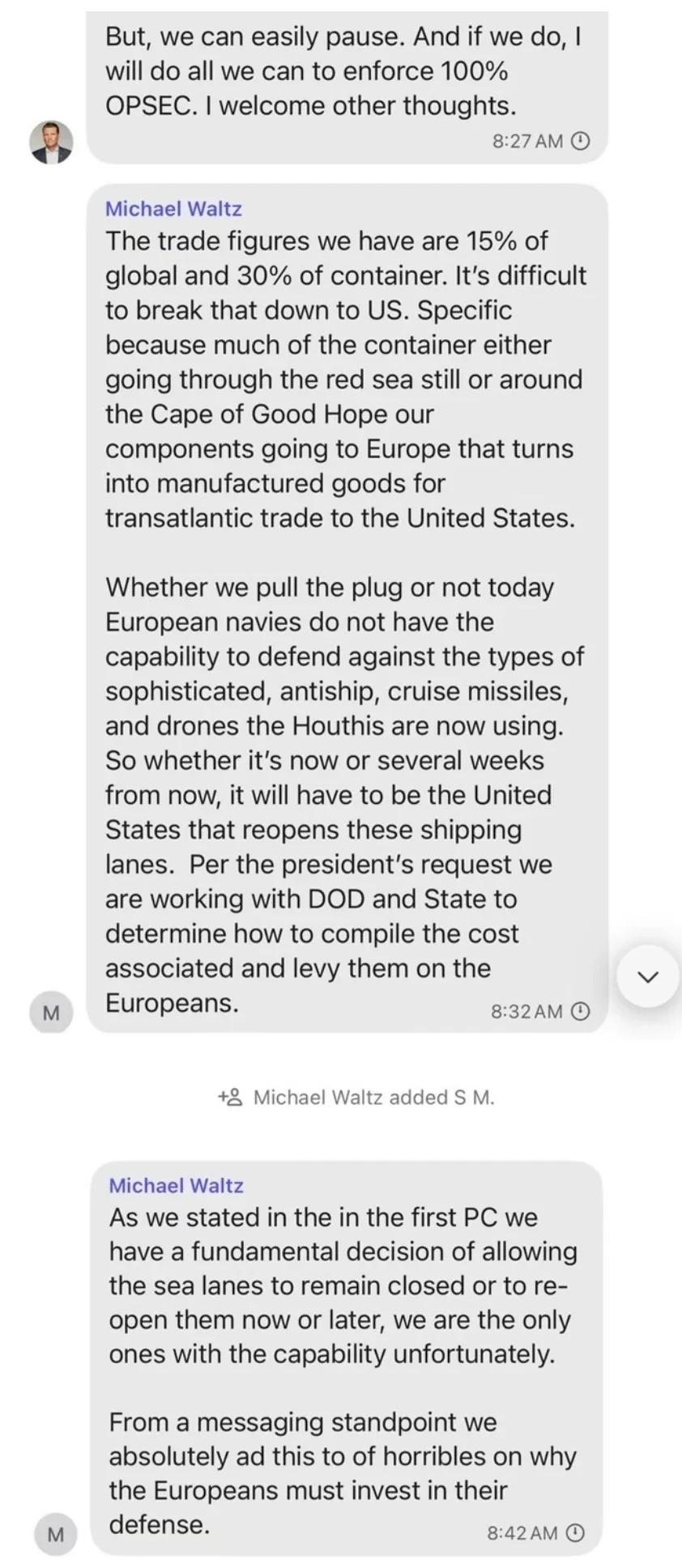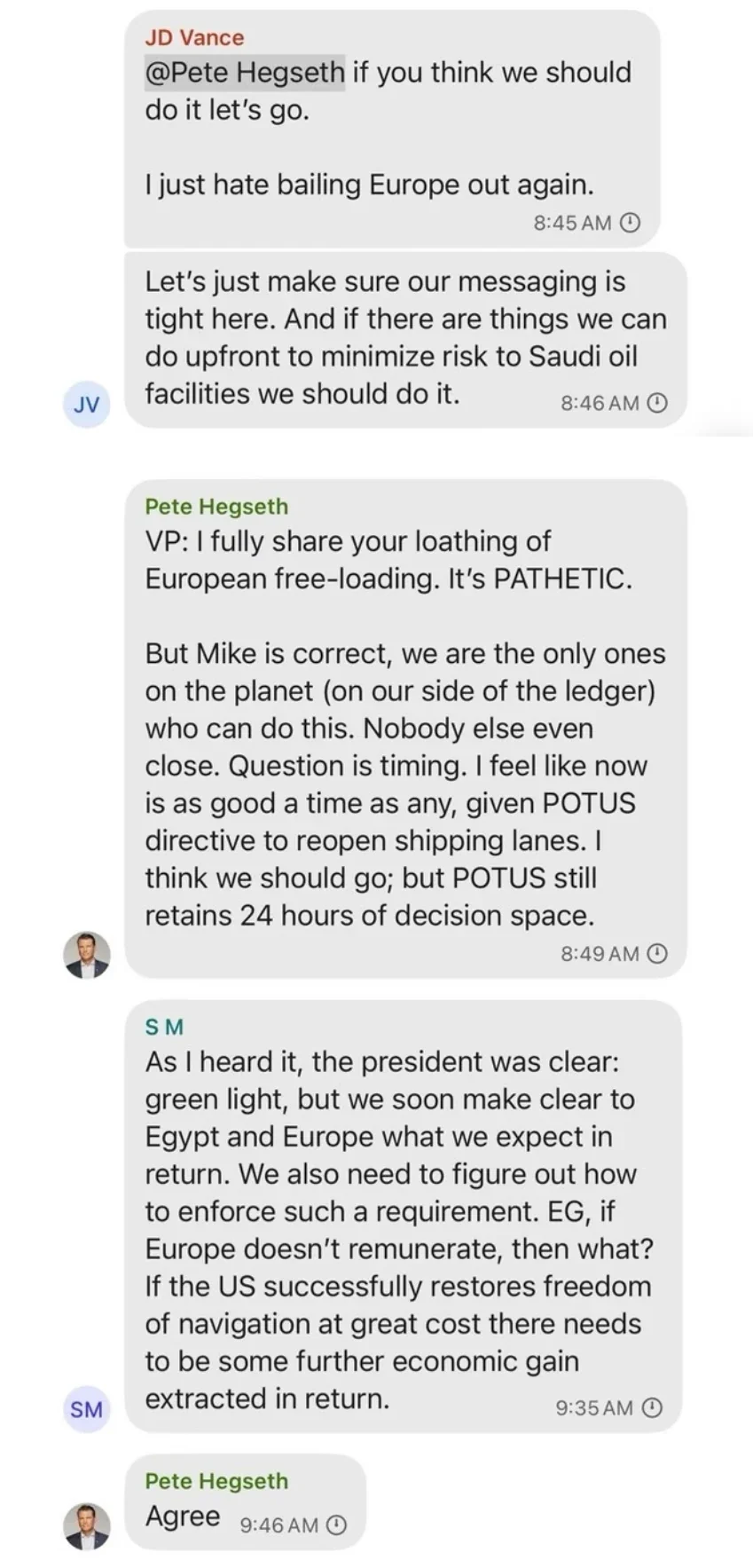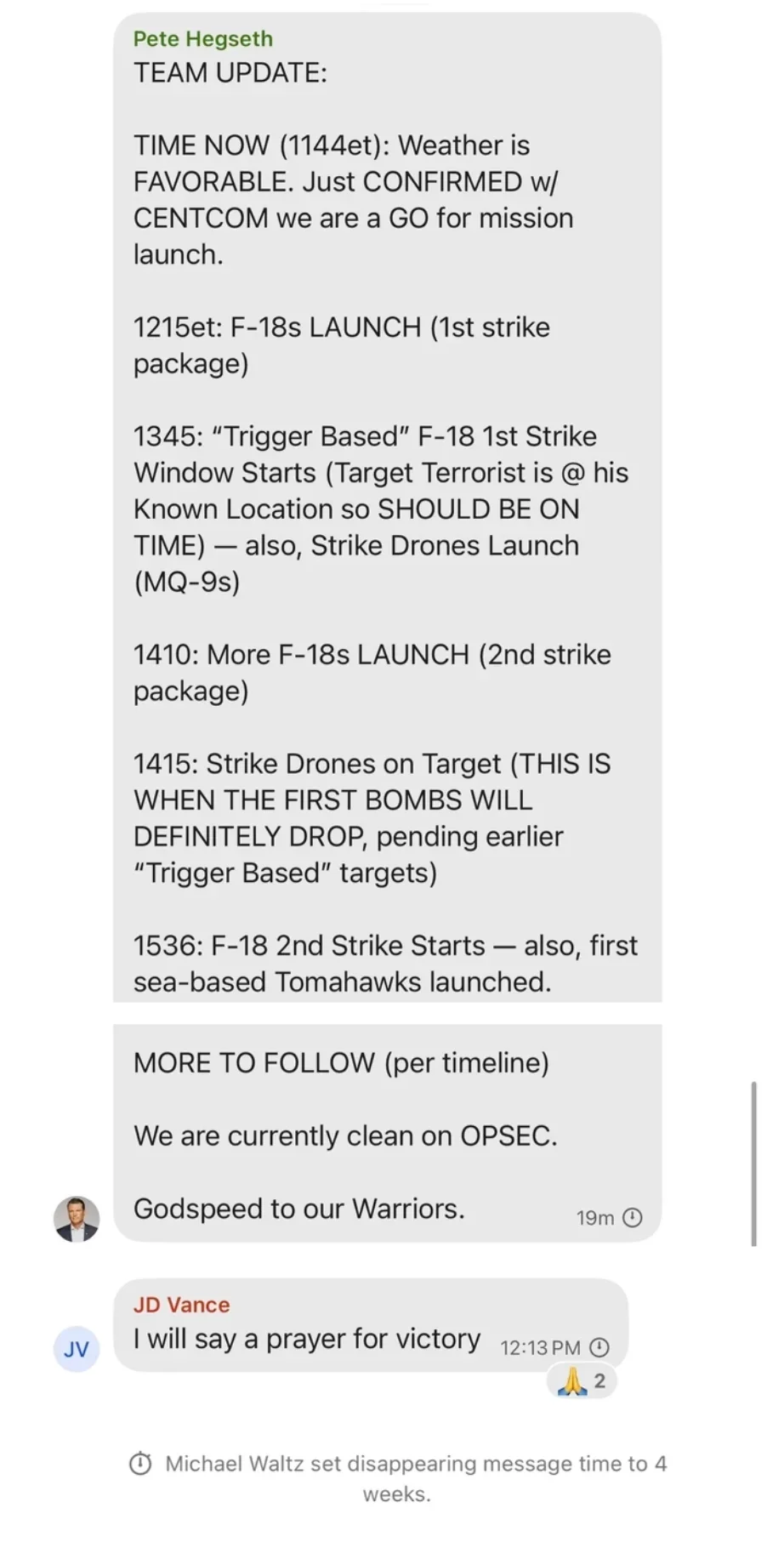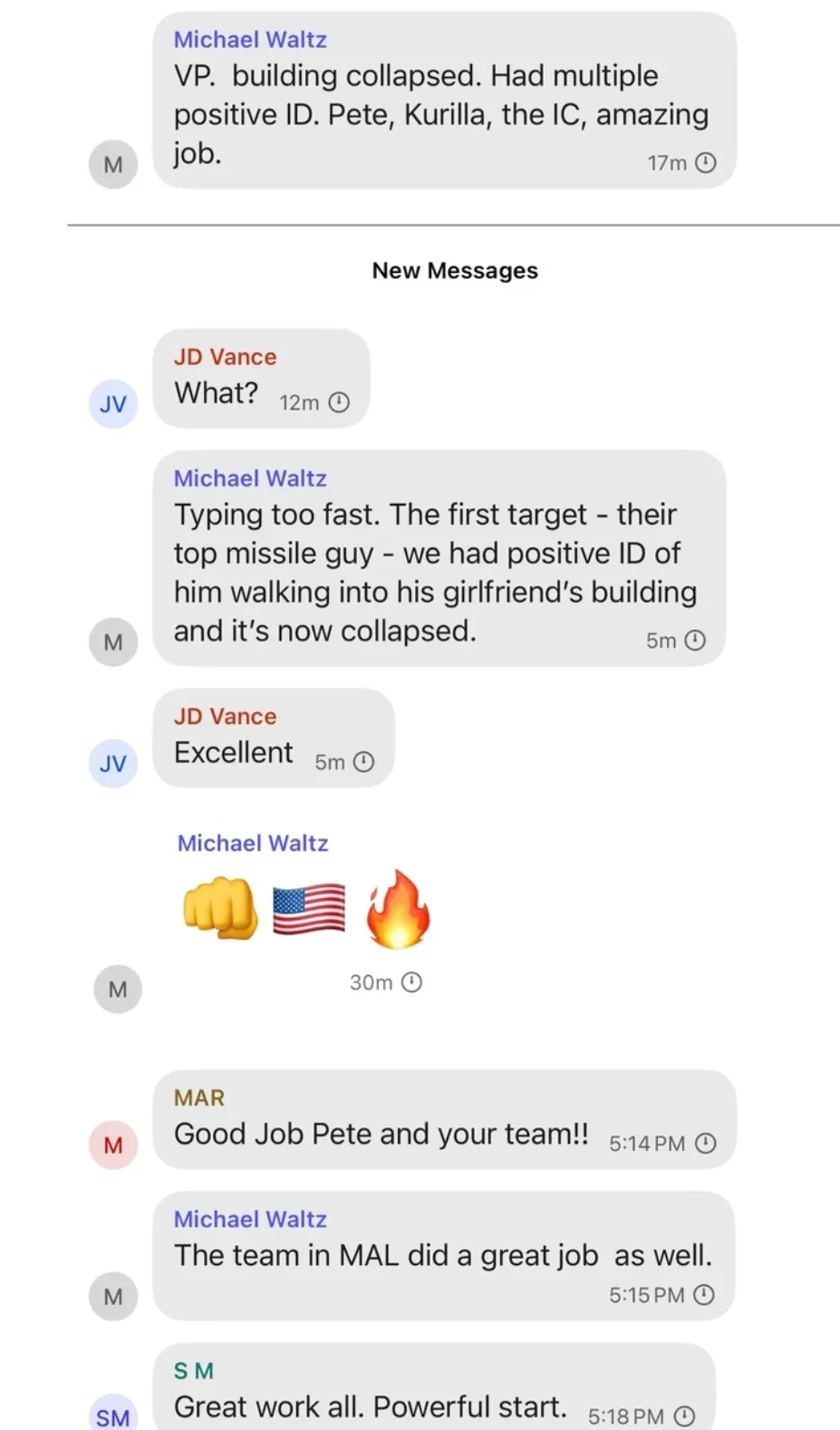Here's the full leaked private chat of US officials discussing Yemen attack
Surreal.
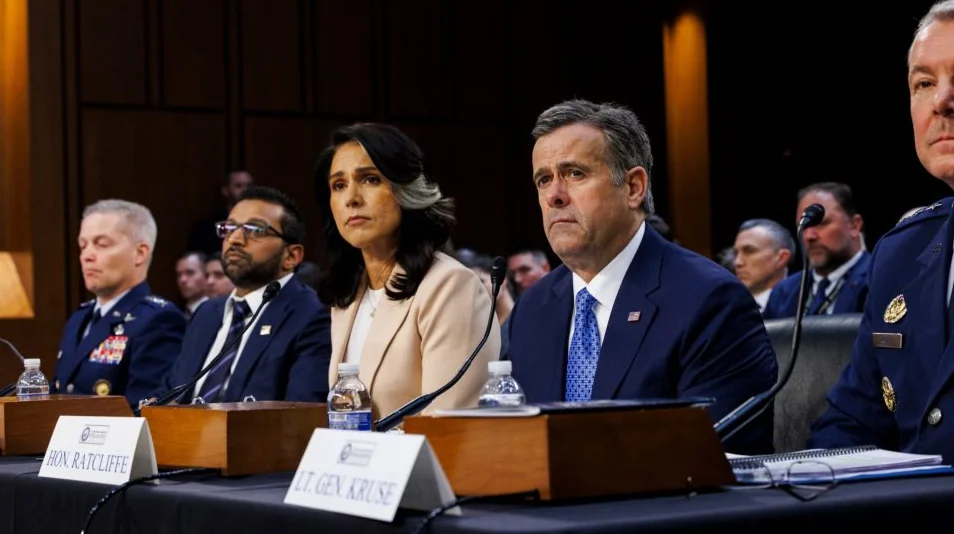
On March 11, 2025, The Atlantic editor Jeffrey Goldberg was accidentally added to a Signal chat with Trump’s top national security team—Michael Waltz, JD Vance, Pete Hegseth, Marco Rubio, Tulsi Gabbard, and more.
Dubbed "Houthi PC small group," the chat laid bare plans for a U.S. strike on Yemen’s Houthi rebels.
On March 15, Hegseth posted specifics: “1415: Strike Drones on Target,” alongside F-18 and Tomahawk timelines.
Hours later, the attack killed 31.
How it happened
The story begins on March 11, 2025, when Goldberg received a connection request on Signal, an encrypted messaging app, from a user identified as Michael Waltz—President Donald Trump’s national security adviser.
On March 13, Waltz added him to a chat labeled "Houthi PC small group" (likely shorthand for Principals Committee), which included 18 members such as Vice President JD Vance, Defense Secretary Pete Hegseth, Secretary of State Marco Rubio, Director of National Intelligence Tulsi Gabbard, CIA Director John Ratcliffe, and other key figures.
Unbeknownst to the group, Goldberg silently observed as officials discussed operational details of an imminent U.S. military strike against Yemen’s Houthi militants, a group that had been attacking international shipping in the Red Sea.
On March 15, at 11:44 AM ET, Hegseth posted a "TEAM UPDATE" with precise timelines, including the launch of F-18 jets, MQ-9 drones, and Tomahawk missiles, as well as weather conditions and targeting information. Hours later, the strikes commenced, killing at least 31 people according to Yemen’s Houthi-run health ministry.
Goldberg, lacking security clearance, did not participate in the chat and later removed himself, a move that would have notified Waltz as the group creator—yet no one followed up.
On March 24, he published his initial account in The Atlantic, withholding some specifics to avoid endangering U.S. personnel.
The next day, after administration officials repeatedly claimed no classified information was shared, the magazine released a fuller transcript on March 26, arguing that the public deserved transparency given the administration’s denials.
Broader implications
The leak exposed more than just military plans. It revealed internal tensions, with Vance urging a delay to avoid “bailing out Europe” (which relies heavily on Red Sea shipping) and Hegseth decrying “European free-loading.”
European allies reacted with alarm, with anonymous officials decrying the “reckless” breach and anti-European rhetoric. Allies like Samar Ali warned that partners might hesitate to share sensitive intelligence with the U.S. moving forward.
Domestically, the incident revived debates over government transparency and accountability.
The National Security Council is reviewing the incident, but accountability remains uncertain.
Read the full chat log
